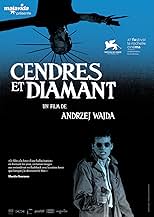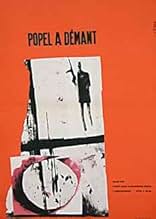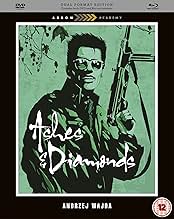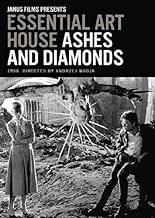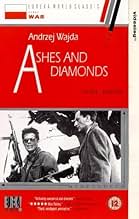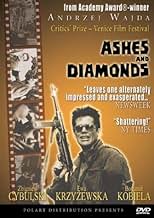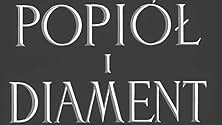Während der deutschen Besatzung lebten Adlige, Bürgerliche und Arbeiter friedlich miteinander. Am ersten Tag ihrer Freiheit beginnen sie, einander zu bekämpfen. In diesen Kämpfen entspinnt s... Alles lesenWährend der deutschen Besatzung lebten Adlige, Bürgerliche und Arbeiter friedlich miteinander. Am ersten Tag ihrer Freiheit beginnen sie, einander zu bekämpfen. In diesen Kämpfen entspinnt sich eine zarte Liebesgeschichte.Während der deutschen Besatzung lebten Adlige, Bürgerliche und Arbeiter friedlich miteinander. Am ersten Tag ihrer Freiheit beginnen sie, einander zu bekämpfen. In diesen Kämpfen entspinnt sich eine zarte Liebesgeschichte.
- Nominiert für 2 BAFTA Awards
- 1 Gewinn & 2 Nominierungen insgesamt
- Stefka
- (as Barbara Kraftówna)
- Barmaid Lili
- (as Z. Czerwinska)
- Franek Pawlicki
- (as W. Grotowicz)
- Jurgieluszka
- (as I. Orzewska)
- Smolarski
- (as M. Loza)
- Puciatycka
- (as H. Siekierko)
Empfohlene Bewertungen
The visual composition of the film is as masterful as the complexity of the characters and plot. Despite the notoriously bad film technology in the Soviet states and the constraints of Socialist Realism, the film manages not only to capture the potential richness of black and white, but also manages to avoid the standard pitfalls of over-zealous editing that often destroy other contemporary Soviet films. The frames are longer shots in general, and forced schematization through editing is all but absent. The precise composition of each scene throughout the film provides the visual coherency that would otherwise be imposed by careful editing; as an example, see the scene in which Maciek is underneath the staircase in the lobby of the hotel towards the end of the film, or the final "Polish" dance scene.
I would highly recommend some research into the political transitions of Poland in the years directly following WWI before viewing this film for the first time; this film was made for a particular audience who clearly understood certain cultural and historical references that a modern Western audience will inevitably miss (ie. "Were you in Warsaw?"). The thematic and emotional complexity of the film is also enhanced by an understanding of Polish history. I would highly recommend this film for any class examining Eastern Europe or Soviet Russia (which is the context in which I was introduced to this film in particular), or to anyone who would like to better understand the complexity of Cold War politics from a perspective behind the Iron Curtain.
Wusstest du schon
- WissenswertesCitizen Kane (1941) - and Gregg Toland's cinematography in particular - was a huge influence on Andrzej Wajda at the time. Like Toland, the first thing the film's cinematographer Jerzy Wójcik did was convince production designer Roman Mann to include ceilings in all the sets.
- PatzerGlasses of vodka are set alight which burn for an unnaturally long length of time and with a bigger flame than expected, suggesting a purer fuel was used in the film, such as petrol. Moreover, when the final flame dies (c.41 minutes) no liquid remains in the glass. Only the alcohol content is flammable in any glass of spirit and a residue of water would be left behind with even the very strongest of Polish vodkas.
- Zitate
Krystyna: Look. An old crypt. An inscription. "So often are you as a blazing torch with flames of burning hemp falling about you flaming, you know not if the flames bring freedom or death, consuming all that you most cherish. Will only ashes remain, and chaos whirling into the void." The letters are blurred. I can't read it.
Maciek Chelmicki: It's by Norwid. "Or will the ashes hold the glory of a starlike diamond, the Morning Star of everlasting triumph."
Krystyna: That's beautiful. "Or will the ashes hold the glory of a starlike diamond..." And what are we?
Maciek Chelmicki: You - are definitely a diamond.
- VerbindungenEdited into CzechMate: In Search of Jirí Menzel (2018)
- SoundtracksCzerwone maki
(Red Poppies) (uncredited)
Music by Alfred Schütz and lyrics by Feliks Konarski
Performed by Grazyna Staniszewska
Top-Auswahl
- How long is Ashes and Diamonds?Powered by Alexa
Details
Box Office
- Budget
- 6.070.000 PLN (geschätzt)
- Laufzeit
- 1 Std. 43 Min.(103 min)
- Farbe
- Sound-Mix
- Seitenverhältnis
- 1.66 : 1

